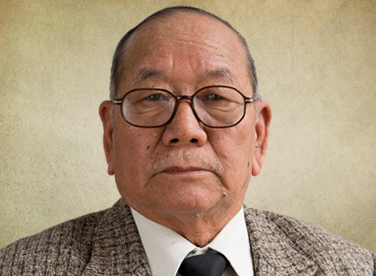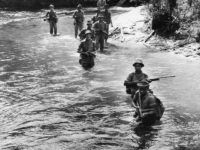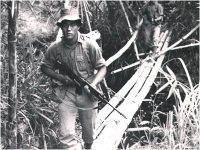Dharam Prashad Limbu
Dharam Prashad Limbu, Corporal
(Portrait © Gurkha Voices Oral History Project)
-
Jungle conditions
-
Searching for guerrillas
Dharam Prashad Limbu lives in Abbeygate House with his wife, Sukmaya. His father was in the Indian Army in the 1930s. Dharam joined the British Brigade of Gurkhas in 1959 and fought for 3 years in the jungle in Malaysia/Brunei. He served in Aldershot in the UK as a one of the warfare demonstration soldiers at Sandhurst Military Academy in 1972. He remembers the cold winters back then in the UK!
(More veteran stories are in our book, published later this year. Keep posted via our blog: www.gurkhastories.wordpress.com)
Interview Extract (based on interpreter's translation):
I was only 16 [when I joined the Gurkhas], but I lied to the people, saying I was 18 years old! I served 15 years but I was I was pretty young, only 32 when I got my pension. It was 90 rupees, compared to here [UK] it wasn’t even 60p. It was hard living off that little money, and I had lots of kids so I had to look after them. So I did farming and all that just to look after them. It was really hard back then.
Recruitment? There used to be a place where they used to be 1,600, 1,700 people coming for the recruitment. And the people, they used to check our fitness skills by making us run and all that. And they used to check up on our health and if we pass it we stay there. If we fail it we just had to go back.
They used to have the flag up and we had to touch the flag and swear on Her Majesty, and what I really thought at that time is, if I break the rules, what will happen to me? So I was really scared! The discipline was really strict. Running was really hard for me. And another thing is swimming, because back in my village there wasn’t much water. There only used to be a river. So I didn’t know how to swim much. But after joining the army, they taught me how to swim.
After basic training? I joined 10 Gurkha Rifles, B Company, 4th Platoon.
Our Commander and about 28 of us, we went for the war and then we waited for the enemies to come. And then after they came, we had a big war, bombarding and all that. And then we managed to kill our enemies and all together 14 of them were killed.
And the Australian government, they used to tell us when the enemies are going to come, because they used to check up on them. So they used to know the exact time and exact place that they were going to come. And yes we ambushed them.
When the war was happening we couldn’t tell any civilians about anything we were going to do, and we had to keep it secret.
I used to be really frightened. Everyone used to be. And I didn’t know if I would die now or if I would die later. And it was really scary for me to face death.
The scaredness inside me didn’t used to go away, because I used to think whether the enemies would come that way or this way. But after the firing happened, you don’t really think about anything. You just shoot them. It wasn’t that frightening after the firing happened.
After we used to go back, the commanders, they used to tell us what we did right or what we did wrong, and from that we used to get bravery awards.
I stayed only for three years and after that I went back for training and later on I went to Sandhurst to demonstrate how to use guns, so it was really good for me. But there’s a lot of stories about war, it’s infinite.
Good times, good times, you can forget it easily, but bad times, it comes to you a lot. Like getting shouted at and going to the war.
Oral histories: © Gurkha Voices Oral History Project



